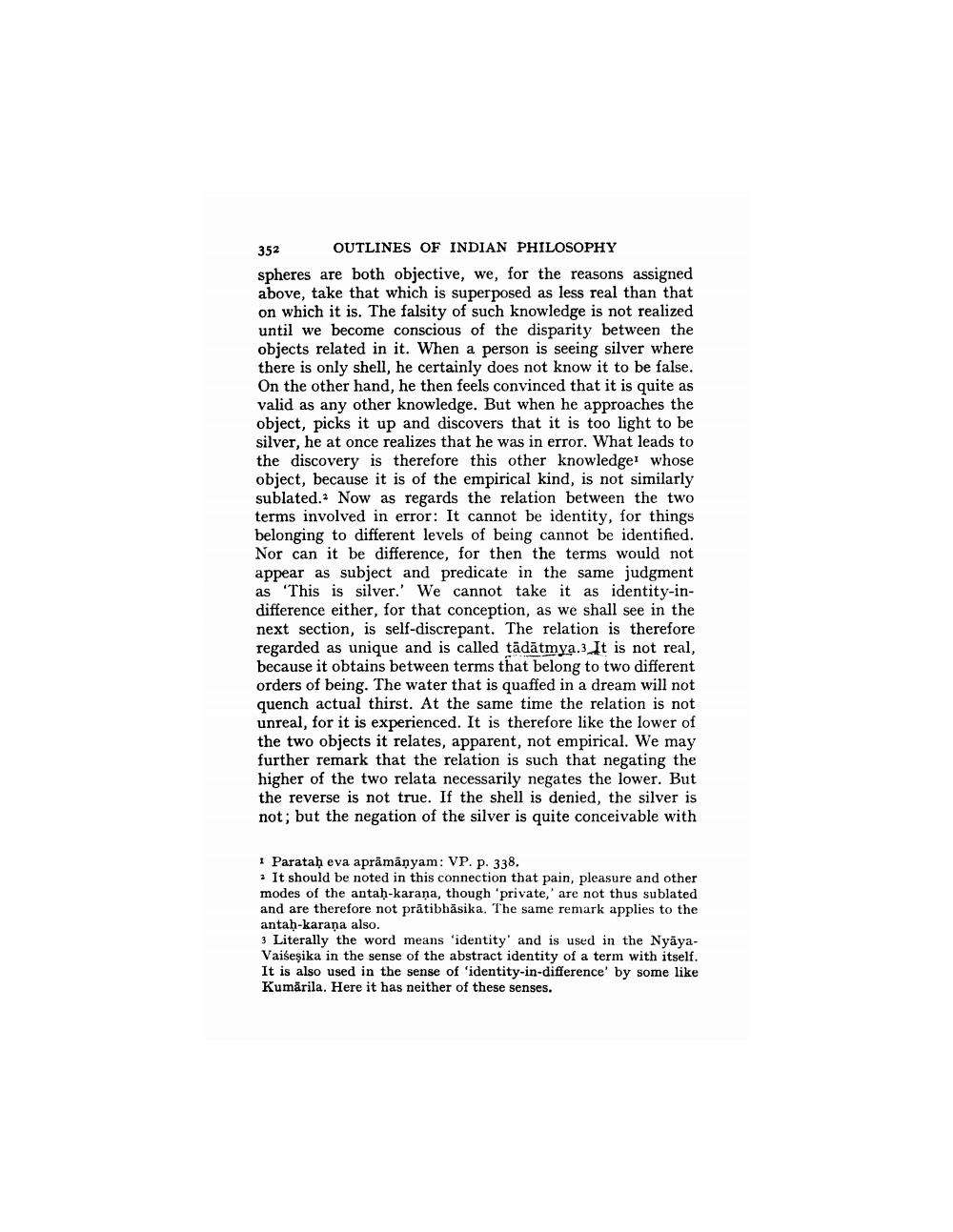________________
352
OUTLINES OF INDIAN PHILOSOPHY
spheres are both objective, we, for the reasons assigned above, take that which is superposed as less real than that on which it is. The falsity of such knowledge is not realized until we become conscious of the disparity between the objects related in it. When a person is seeing silver where there is only shell, he certainly does not know it to be false. On the other hand, he then feels convinced that it is quite as valid as any other knowledge. But when he approaches the object, picks it up and discovers that it is too light to be silver, he at once realizes that he was in error. What leads to the discovery is therefore this other knowledge1 whose object, because it is of the empirical kind, is not similarly sublated. Now as regards the relation between the two terms involved in error: It cannot be identity, for things belonging to different levels of being cannot be identified. Nor can it be difference, for then the terms would not appear as subject and predicate in the same judgment as This is silver.' We cannot take it as identity-indifference either, for that conception, as we shall see in the next section, is self-discrepant. The relation is therefore regarded as unique and is called tādātmya.3 It is not real, because it obtains between terms that belong to two different orders of being. The water that is quaffed in a dream will not quench actual thirst. At the same time the relation is not unreal, for it is experienced. It is therefore like the lower of the two objects it relates, apparent, not empirical. We may further remark that the relation is such that negating the higher of the two relata necessarily negates the lower. But the reverse is not true. If the shell is denied, the silver is not; but the negation of the silver is quite conceivable with
Parataḥ eva aprāmāṇyam: VP. p. 338.
It should be noted in this connection that pain, pleasure and other modes of the antaḥ-karana, though 'private,' are not thus sublated and are therefore not pratibhāsika. The same remark applies to the antaḥ-karana also.
3 Literally the word means 'identity' and is used in the NyayaVaiseşika in the sense of the abstract identity of a term with itself. It is also used in the sense of 'identity-in-difference' by some like Kumārila. Here it has neither of these senses.




